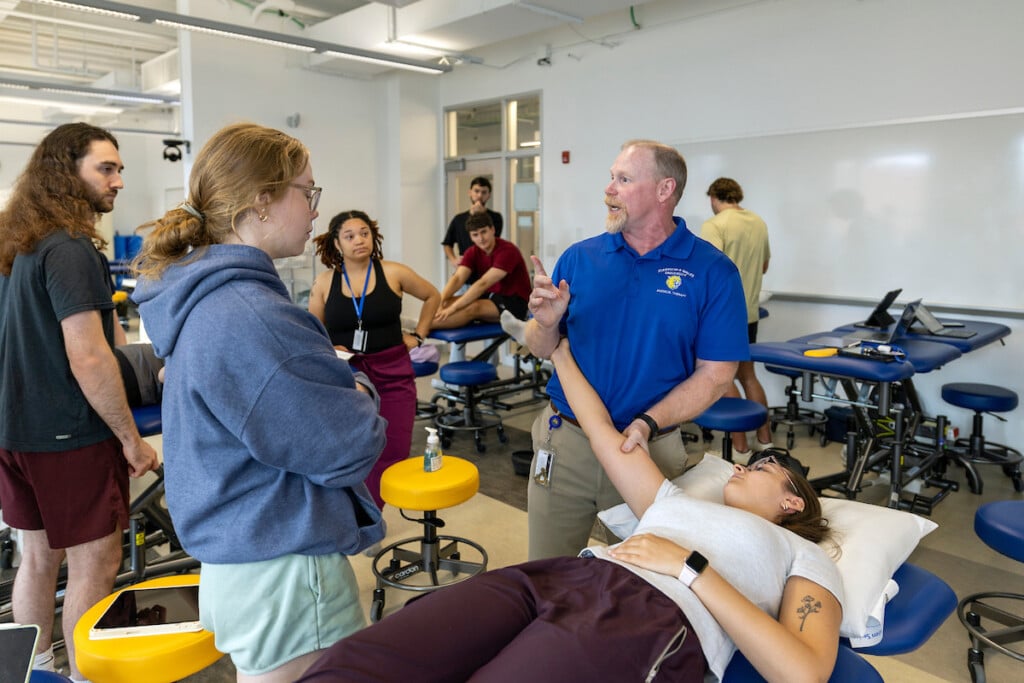Always Queer, Always Here: Exploring Local LGBTQ+ Archives
From public Universal Friend's origins to changed blood donation guidelines, Rhode Island has a long history with the community.

Female impersonator Francis Renault. Courtesy of Providence Public Library LGBTQ+ Community archives.
Providence Public Library
Since 2019, the Rhode Island LGBTQ+ Community Archives at the Providence Public Library has collected materials related to queer history from the state’s earliest decades to the present day. Kate Wells, curator of Rhode Island Collections, manages the project alongside an advisory board of local LGBTQ+ community members. “For very good reasons, LGBTQ+ people were hiding their identities for a very long time because of safety issues. To then be able to uncover those stories for people to say here’s my identity … in our experience, we see researchers come in who really respond,” she says. The collection includes materials from all eras of Rhode Island history, from Cumberland’s eighteenth century Public Universal Friend to vaudeville-era female impersonator Francis Renault. It also serves as a repository for the Queer StoRIes project founded by Virginia Thomas. “If it’s documenting queer history in the state, that’s something we’re interested in,” Wells says. provlib.org
Wanderground Lesbian Archive/Library
As a lesbian immersed in the community at the tail end of the twentieth century, Mev Miller experienced a rich culture of activism and solidarity where women bonded over shared spaces and publications. Several decades later, she says, many of those spaces have disappeared. “I think there is this awareness that we’ve lost those community connections,” she says. In 2022, with the help of a team of volunteer “groundkeepers,” the Cranston resident transformed her private collection into an archive of lesbian history. The collection comprises more than 5,000 books, T-shirts, records and other items celebrating lesbian culture in New England between 1950 and 2000. “We feel that era of lesbian activism and lesbian feminism was a very special time in our herstory, and one that’s important for young lesbians coming of age to understand,” says M’lyn Hines, a member of Wanderground’s Amazon Steward Council. In addition to collecting oral histories and hosting pop-up exhibits, the archive’s organizers are seeking a larger space where the artifacts can be accessible to the public.
wanderground.org
Binch Press/Queer.Archive.Work
In 2021, Binch Press and Queer.Archive.Work — already sharing a space in Providence’s Valley Arts District — combined into one organization dedicated to uplifting LGBTQ+ and BIPOC voices. Though it maintains an extensive zine and book library, the organization functions less as a traditional archive and more as a makerspace for queer and BIPOC work. “It’s really the studio as a community hub for queer and trans folks that has become the most important aspect of who we are and what we provide,” says Paul Solellis, who founded Queer.Archive.Work as part of his artist practice in 2020. “What we are doing is making and preserving evidence of queer life and saving it in our library.” The space features a full screen-printing studio along with binding equipment, a library and supplies. Members have access to the space, and the public is welcome during biweekly open studio hours. “It is the relationships that are forming and growing within the space and supporting each other through our collaborative work that I think is the most valuable aspect of who we are,” Solellis says. queer.archive.work
John Hay Library at Brown University
The John Hay Library at Brown University houses several collections of LGBTQ+ materials, including the personal papers of queer scholars and activists, materials related to the science fiction fandom Gaylactic Network, and more than 4,700 volumes of gay pulp fiction, lesbian fiction and erotica. In 2021, the university established the Global Lavender Voices strategic direction to celebrate queer voices in its collections. Future collecting efforts will focus on lesbian, trans, nonbinary and two-spirit peoples from the BIPOC communities of the United States, Brazil and the Caribbean. library.brown.edu
























